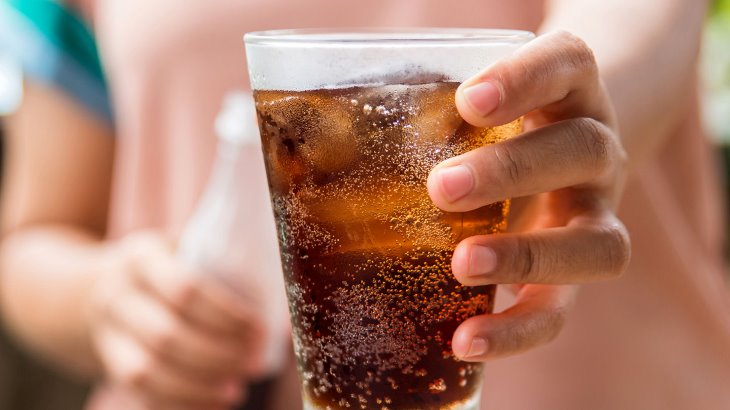
Image Credit: www.everydayhealth.com
Say no to sweeteners!
Imagine being able to enjoy a fizzy soda and ice cream with none of the calories! This is the attractiveness of sugar-free food. While a regular can of cola can set you back by 128 calories, its sugar-free alternative contains almost zero calories, easing your guilty conscience when you have a sweet tooth.
Sounds too good to be true? That’s because it probably is. When packaged food and drinks carry the ‘Sugar-Free’ label, it means that there is no sugar in the product, but the sugar is likely to be replaced by artificial sweeteners or sugar alcohols.
Did You Know?
Artificial sweeteners and sugar alcohols are chemically manufactured molecules, which means they do not exist in nature. They are hundreds to thousands times sweeter than regular sugar, so a small dose does the same job of delivering sweetness in place of sugar.
Over the years, many studies have been done to assess the health risks associated with long-term use of artificial sweeteners, but they remained relatively new in the market as they did not exist until 40 years ago. This lack of research and evidence is a good reason to proceed with caution and limit intake of these chemically-created sweeteners.

But Aren’t They Labelled ‘Healthier Choice’ In Supermarkets?
The ‘Healthier Choice’ label is issued to food items that are healthier as compared to their counterparts. This is why the label can even be seen on ice cream, soft drinks and frozen french fries.
Some manufacturers tend to leverage on these ‘healthier choice’ labels by using artificial sweeteners or sugar alcohols to cut down on sugar levels while some really cut sugar without having any replacements and additives for the reduction. Hence it is important that as consumers to read the labels and pick those REAL healthier choices for your love ones in the family and avoid mistaking them to be healthy for regular consumption.
People also tend to consume greater quantities of foods which they believe to be healthy, and may overconsume ‘Healthier Choice’-labelled items which may lead to higher calorie intake. They also tend to rationalize ‘sugar-free/zero/light’ alternatives as an excuse to enjoy these treats on a daily basis, which may be more detrimental to their health as compared to foods without the label.
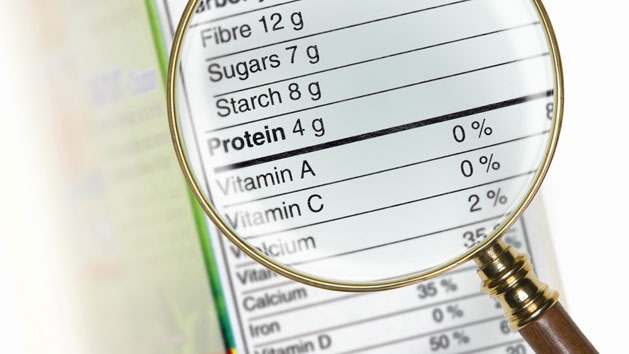
Image Credit: Hungry for change
Learn To Read Ingredient Labels
Artificial sweeteners and sugar alcohols are essentially chemicals, and these non-nutritive sweeteners may condition palates to crave for sweets and sugar, which contributes to unnecessary sugar intake and poor eating habits.
The presence of constant artificial sweeteners may also alter your taste for food, as your taste buds are constantly overstimulated, which can make you shun naturally sweet foods like fruits over time as you crave for more artificially-flavoured foods which are intensely sweeter.
The long-term health effects of artificial sweeteners and sugar alcohols have been hotly debated in recent years, with several studies claiming that excessive consumption may result in health problems like obesity, diabetes and heart diseases. It is best to learn how to identify and avoid these 3 common sweeteners.
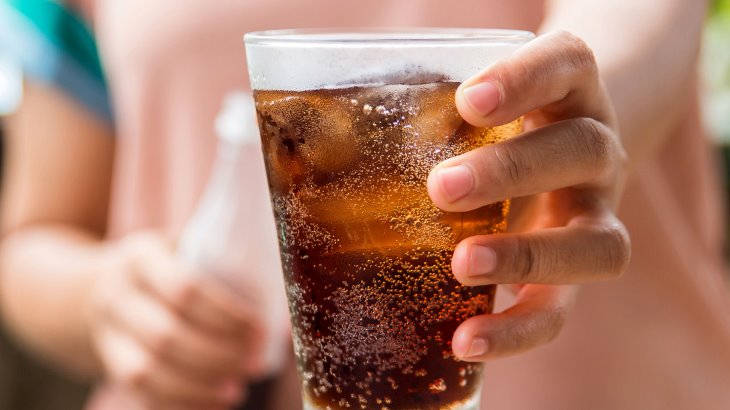
Sucralose (Artificial Sweeteners)
Found in: Soft drinks, baking products and jams.
About 400-700 times sweeter than sugar and the most heat-stable of the lot, sucralose is widely used in baked foods and pastries. It offers energy but almost no nutritional benefits.
While authorities have claimed that sucralose is safe to eat, some studies have linked it to health problems. In 2012, an independent Italian laboratory announced a study that found a possible link between sucralose and leukaemia in mice. Until the study can be reviewed further, it is recommended to be consumed sparingly.
Maltitol (Sugar Alcohol)
Found in: Cultured milk (Yakult Acelight), Baking products
Maltitol is processed form sugar maltose and has a very similar taste and mouthfeel as regular sugar. It is 90% as sweet as sugar with almost half the calories.
The main problem with sugar alcohols like Maltitol is that it wreaks havoc on your digestive system, especially when consumed in large amounts. Sugar alcohols can produce abdominal gas, bloating and diarrhoea in some individuals because they cannot be completely absorbed by the body and are fermented by bacteria in the large intestines.
The Ministry of Health, Singapore advises the public to be cautious in regards to excessive sugar alcohol consumption. According to a statement by Health Promotion Board, consumers are warned that “consuming sugar alcohols in large amounts can have laxative effects or cause other gastric symptoms.”
https://www.healthhub.sg/programmes/77/sweet-talk-sugars-and-sweeteners
High-Fructose Corn Syrup (HFCS)
Found in: Soda, cereals
A much cheaper alternative to sucrose and it gives products a longer shelf life, hence more packaged foods contain HFCS, especially daily staples like cereals.
Some studies claim that beverages sweetened with HFCS contribute to obesity more than sucrose, as it is easily converted to fat when consumed in large quantities.
Choose ‘Less Sugar’ Over ‘Sugar-Free/Zero/Light’
For overall health, regular sugar may actually turn out to be the healthier choice than its chemically-derived alternative and can be worked into any healthy diet, as long as it is consumed in moderation.
Cultured drinks like VITAGEN Less Sugar, is specially formulated to contain 50% less sugar than other regular cultured milk drinks, without any nasties like Maltitol (a sugar alcohol that might affect digestive system). Even with 50% less sugar, it still tastes 100% satisfying because it is also made with real fruit juice.
Avoid sugary drinks that contain sucralose (soft drinks) which may cause gastrointestinal issues, but instead opt for healthier choices like VITAGEN Less Sugar, the only cultured milk drink to contain both Prebiotics and Probiotics that help maintain a healthy digestive system. Every bottle has billions of live probiotic cultures (Lactobacillus acidophilus & Lactobacillus casei) from Chr. Hansen Denmark.
Enjoy a delicious drink with the added benefit of probiotics to restore the balance of friendly bacteria in your gut, which can help to alleviate digestive problems caused by hidden sweeteners/sugar substitutes in everyday food.
VITAGEN Less Sugar Cultured Milk
5 x 125ml ($3.20)
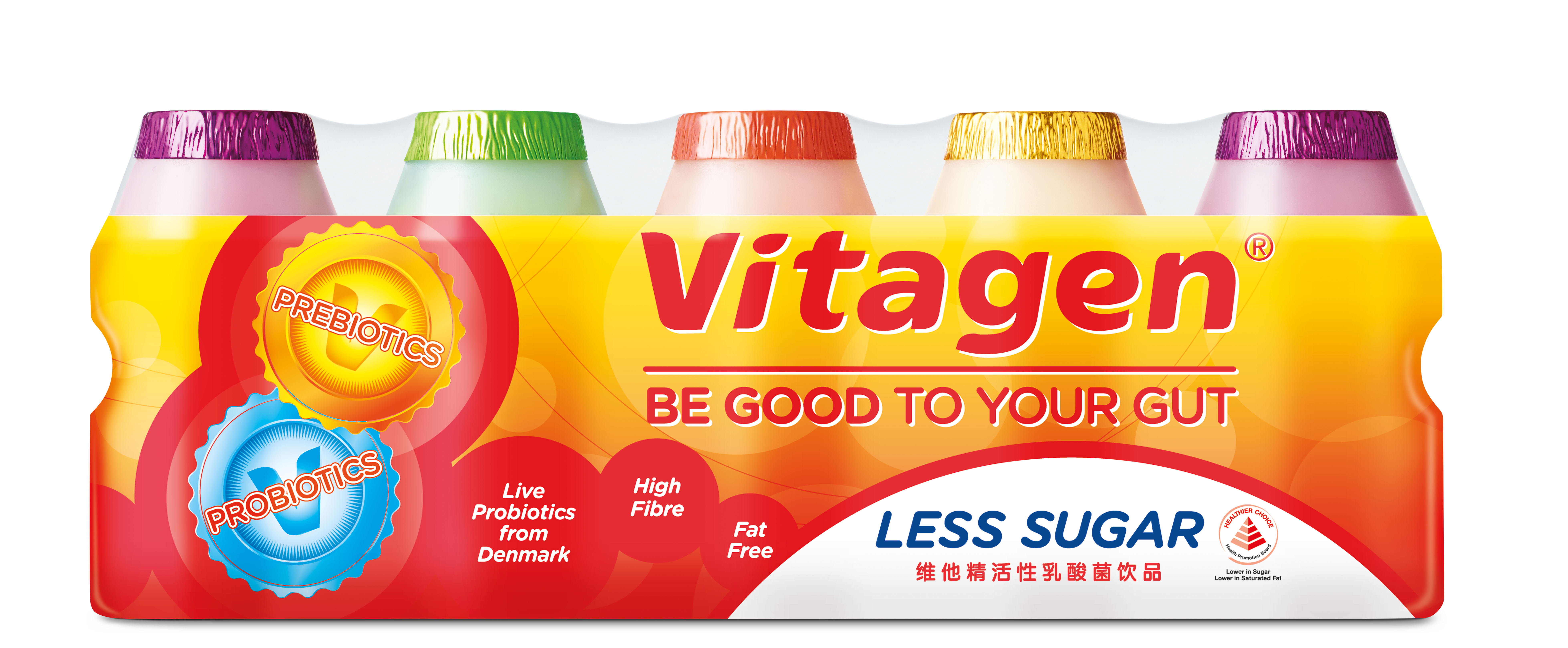
VITAGEN Collagen Less Sugar Cultured Milk
5 x 125ml ($4.00)
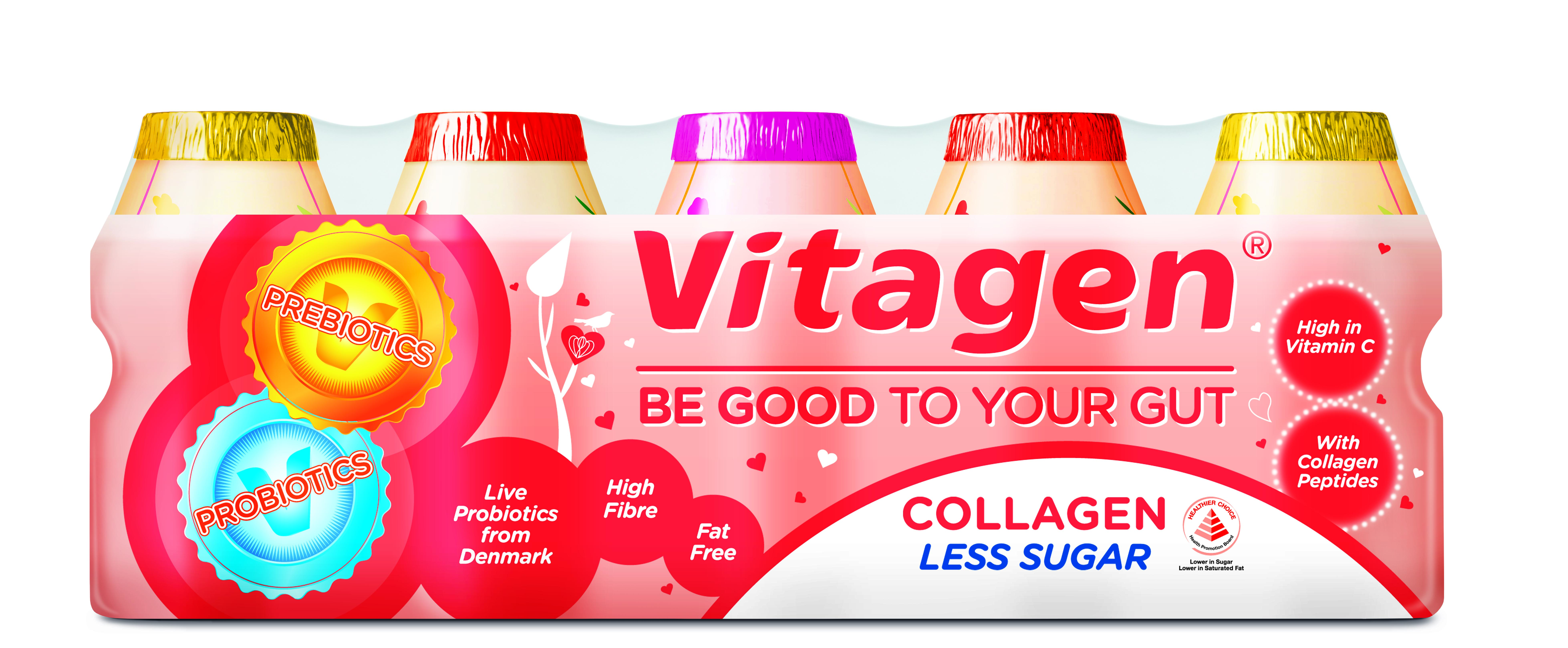
Copyrighted Pregnancy & Baby by Mummys Market 2019


